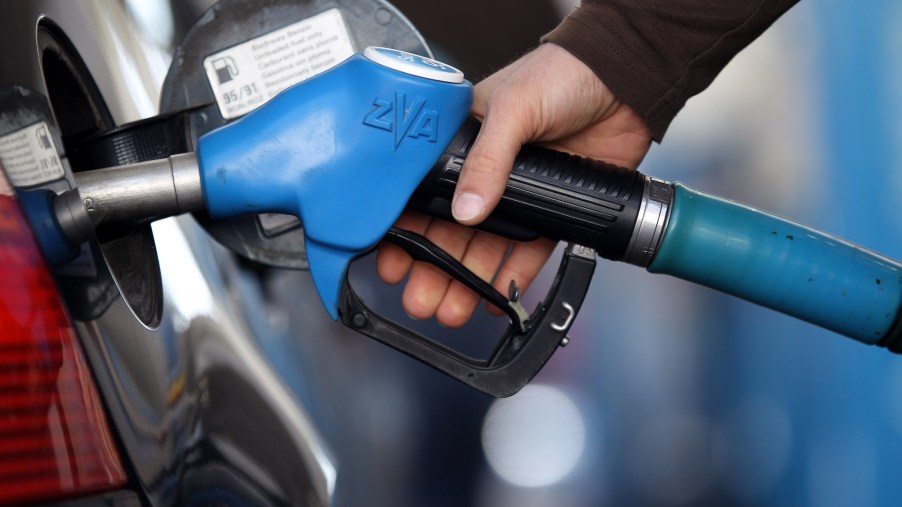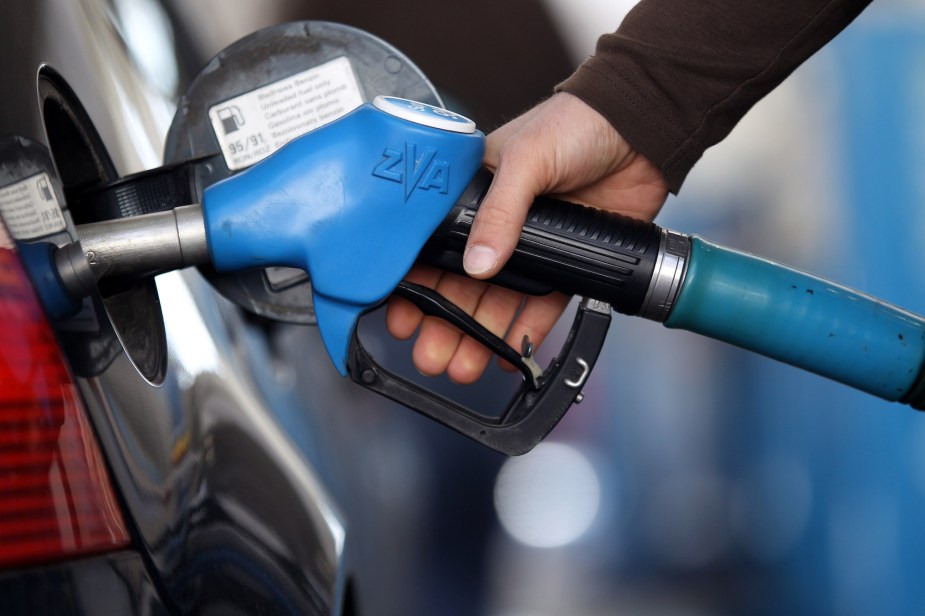
Is It Worth Buying a New Car to Save on Gas?
With Americans paying record-high prices for gas, many drivers are considering more fuel-efficient options. One of those options may include buying a new car. But is it really worth it to save on gas?
Is it worth buying a new car for better gas mileage?

According to Autobytel, it may not be worth it. Buying a new car to save on gas is a knee-jerk reaction. It does not take into account the costs of car ownership in general. If you want to save money on your car, it may be best to look at all the expenses associated with it.
Many costs concerning your car are not even related to gas at all. Insurance, registration fees, auto loan costs, and repairs are likely bigger than however much more you are spending to fill up.
There’s also depreciation, which is how much value a car loses over time. Autobytel states it could lose 35% to 50% of its value over five years. Selling your old car so you can buy a new one to save on gas could easily lead to you paying more overall than the difference in gas prices.
As Jerry states, the average small car holds about 12 gallons of gas. And according to AAA, the average cost of gas in the U.S. is $5.01 per gallon for regular. Using the average price of regular gas in June 2021 at $3.07 per gallon, it will cost around $23 more to fill up a tank. Trying to find a way to save on gas alone will go nowhere if you end up buying a new car with a higher insurance cost or monthly loan payments.
Do older cars become less fuel-efficient?
Per Scotty Kilmer, older cars get less efficient if they are not properly maintained or driven. If you don’t change the oil enough, dirt can build up over time and prevent your engine from running at full efficiency. Damage to fuel injectors with dirt build up, brakes dragging, or wear on the transmission can also lead to worse mileage.
Depending on how old the car is, it may use carburetors. Those can wear out over time and lead to lower gas mileage. Per Autotrader, the last car sold in the U.S. using carburetors was in 1994. By the late 1980s, most cars used electronic fuel injection, and that system could run smoothly for hundreds of thousands of miles. In Kilmer’s explainer, his 1993 Toyota Celica still gets close to the same mileage it did more than 200,000 miles prior.
Autotrader also explains many older cars are lighter than their modern counterparts. A 1988 Honda CRX could easily clear 50 miles per gallon on the highway, but it weighed less than 1,700 pounds. A 2022 Honda Civic weighs more than 2,800 pounds. This means an older car weighing much less can still get similar fuel economy numbers to modern cars.
Is it worth buying an electric car?
Autobytel says not to rush into buying an electric vehicle just yet. An electric vehicle (EV) means you can save on gas by not needing any. But it can be expensive depending on the EV you buy. It will also cost you to charge at a charging station.
Charging an EV at home costs around $21.60 per month as of March 2021. Setting up a charging station at home can cost thousands of dollars. Charging in public can depend on what kind of station you use. It’s important to factor in the other costs of having a normal car, like registration, insurance, loan payments as mentioned earlier before making that decision.
Which new cars are the most fuel-efficient?
Buying a new car solely to save on gas is not a good idea. The overall cost of a vehicle and the worth of a used car to sell or for trade must be considered before making that big change.
If you decide to buy a new car, several stand out for their fuel efficiency. U.S. News names the 2022 Hyundai Ioniq as the car with the best gas mileage at 59 miles per gallon combined. Close behind are fellow gas-electric hybrid cars like the Toyota Prius with 56 mpg combined and the Hyundai Elantra Hybrid with 54 mpg combined. The Kia Niro SUV gets 49 mpg combined, and the luxury Lexus UX 250h gets 42 mpg combined.


